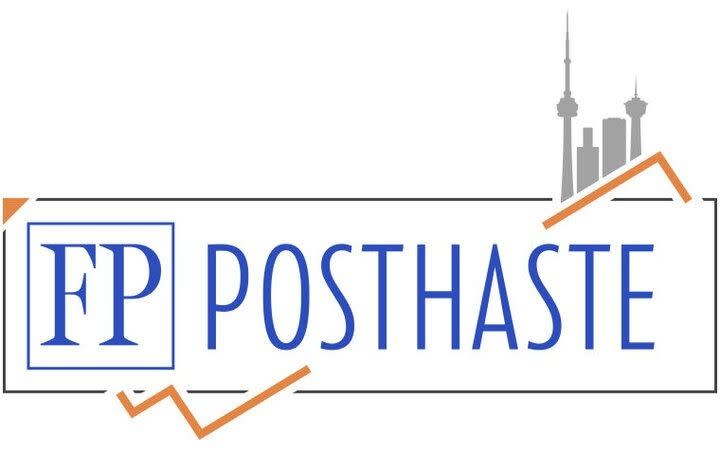Posthaste: Why Canada's housing market could rebound sooner than many expect


Canada’s housing market is nearing a “tipping point” and its recovery will start sooner than many expect, says a new report by one of Canada’s leading real estate companies.
“I believe the narrative suggesting that the housing market will rebound only when the Bank of Canada lowers rates misses the mark,” said Phil Soper, chief executive of Royal LePage said in the report released today.
“The recovery will begin when consumers have confidence the home they buy today will not be worth less tomorrow. We see that tipping point occurring in the first quarter, before the highly anticipated easing of the Bank of Canada’s key lending rate.”
National home prices slipped 1.7 per cent lower in the fourth quarter of 2023, showing that higher borrowing costs were still weighing on the market, said the report. Since the market’s peak in the first quarter of 2022, home prices have fallen 7.9 per cent.
However, they still remain well above their pre-pandemic levels. In the fourth quarter, prices were 18.7 per cent higher than in the same period in 2020 and 22 per cent higher than in 2019.
Overall economic conditions are good, said the report. Unemployment among the working-age population is low, savings levels are higher than normal and mortgage delinquency is at historic lows.
“We believe many who need housing have the capacity to enter the market, they simply lack the confidence to transact,” Soper said.
Inventories have increased as sales dropped this past year, but remain below historic norms, the report said. In the fourth quarter there were four months’ of inventory available in Canada, more than the two months during the housing boom, but less than between five and six months available in 2018 and the first half of 2019.
“The fundamental shortage of housing supply in this country will inevitably put upward pressure on home prices when temporarily sidelined buyers return to the market in the months ahead,” said Soper.
The Bank of Canada is widely believed to have completed this interest-rate hiking cycle and rate cuts are expected later this year. Some financial institutions have already begun to offer discounts on fixed-rate mortgages as bond yields decline.
Over the next two years, 45 per cent of outstanding mortgages will be up for renewal, according to data from the Canada Mortgage and Housing Corporation. “That’s about 2.2 million households that will be renewing their mortgages, most at a much higher rate,” said the report.
Among regional markets, Calgary bucked the national trend. This western city was the only market to post a quarterly home price gain at the end of 2023. Prices were up 10.7 per cent from a year ago to $663,500, the highest yearly appreciation in the country.
October home sales in the city were the best on record for that month, said Corinne Lyall, owner of Royal LePage Benchmark.
“The city continues to experience a wave of interprovincial migration as Canadians seek out more affordable living options, which is driving further demand for housing here.”
In Toronto, the country’s biggest market, home prices fell 2.1 per cent in the fourth quarter from the quarter before to $1,123,300. They were up 5.1 per cent from the year before.
Dropping sales have increased inventory in this city, but Karen Yolevski, chief operating officer of Royal LePage Real Estate Services Ltd., said housing stock in the Greater Toronto Area remains out of step with demand.
“With new household formation from young Canadians, older generations wanting to age in place and a record number of newcomers entering the country, new construction cannot keep pace with the rate of demand,” said Yolevski.
Royal LePage predicts that home prices nationally will rise 5.5 per cent in 2024. Both Calgary and Toronto are expected to beat that, with increases of 8 per cent and 6 per cent respectively.
_____________________________________________________________________
Was this newsletter forwarded to you? Sign up here to get it delivered to your inbox.
_____________________________________________________________________


Home prices have cooled around the world as central banks raised interest rates, but housing affordability still remains stretched, says the International Monetary Fund. Home prices in most advanced economies are still 10 to 25 per cent higher than pre-pandemic levels and costs have climbed with the rise in borrowing rates.
“In all, housing affordability is more stretched amid still-elevated home prices and higher interest rates,” said the IMF.
U.S. markets are closed for Martin Luther King Day
The Bank of Canada will release its business outlook survey and Canadian survey of consumer expectations today, ahead of its next interest rate decision and monetary policy report next week.
Canadian Real Estate Association is expected to release its December home sales figures today
Today’s Data: Canada wholesale trade
Get all of today’s top breaking stories as they happen with the Financial Post’s live news blog, highlighting the business headlines you need to know at a glance.

FP Dealmakers: Interest rate peak fuels optimism on Bay Street
Doing the safety dance in case this market rebound doesn’t turn out like everyone else expects
Income gap between new immigrants and broader public narrowed dramatically: PBO
“The problem with commodities is that you are betting on what someone else would pay for them in six months,” Warren Buffett famously once said of gold. Nevertheless, gold’s high price has more investors becoming interested in adding the metal to their portfolios, but investment manager Andrew Dobson says it’s not always a good fit for everyone. Get the answer from FP Investing
Today’s Posthaste was written by Pamela Heaven, @pamheaven, with additional reporting from The Canadian Press, Thomson Reuters and Bloomberg.
Have a story idea, pitch, embargoed report, or a suggestion for this newsletter? Email us at posthaste@postmedia.com, or hit reply to send us a note.
Bookmark our website and support our journalism: Don’t miss the business news you need to know — add financialpost.com to your bookmarks and sign up for our newsletters here.

 Yahoo Finance
Yahoo Finance 



